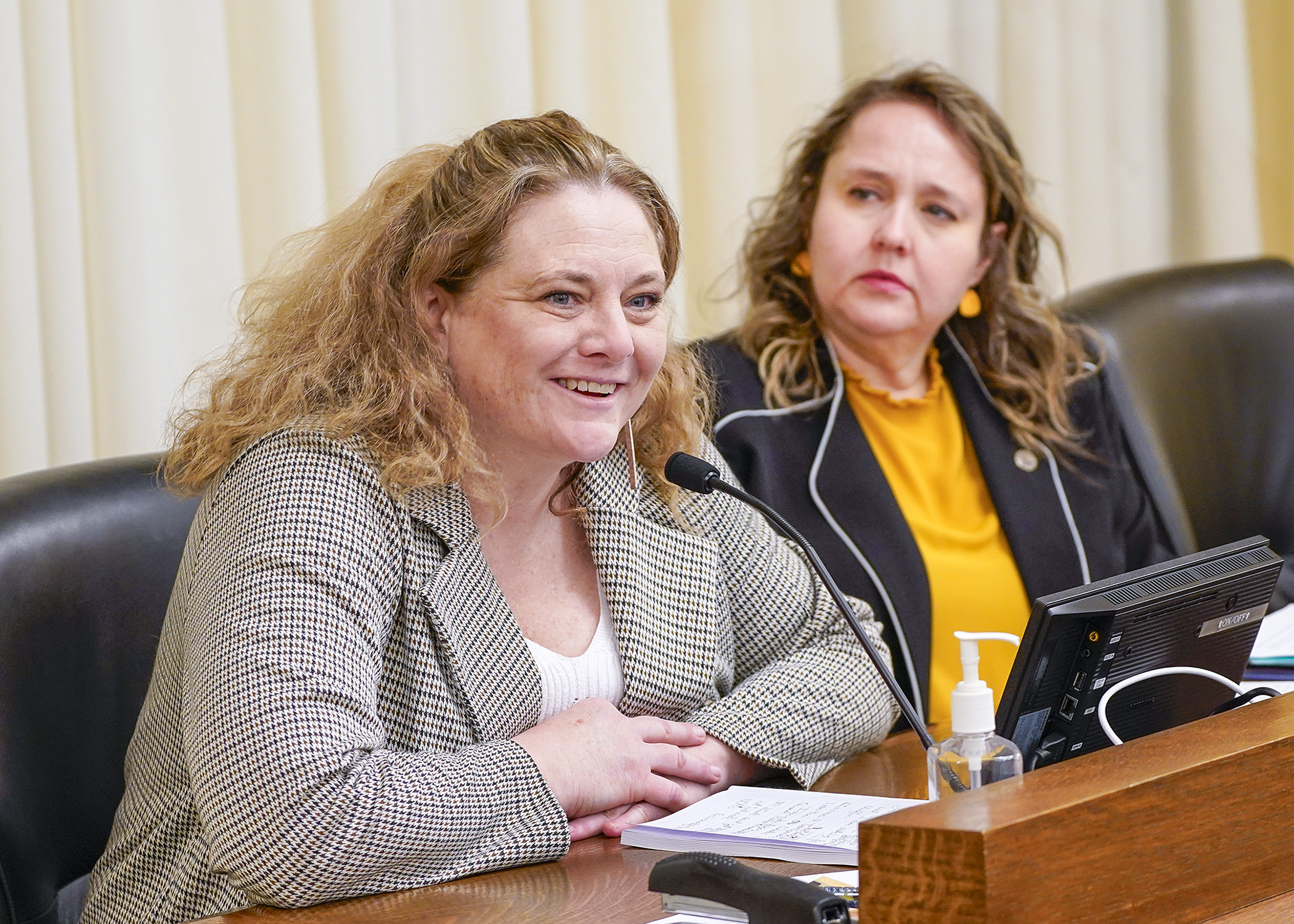Supporters say pricing fairness bill would level playing field for local grocers

Jessica Rohloff’s hometown of New London had several grocery stores when she was growing up. But it went 15 years without a grocery store until the New London Food Co-Op opened last year.
When the grocery store opened, Rohloff, the manager, faced non-disclosure agreements and exclusivity contracts. When she receives a wholesale order list, the prices are often 27-97% higher than the shelf price at a big box retailer. It’s cheaper for her to bring in food from Italy than to receive it from a major U.S. food company. Grocers like her are not asking for favors, but rather fairness, transparency and access to good food without their small community being decimated, she said.
There used to be family-run small grocery stores in many rural towns, but that’s not the case today, said Rep. Isaac Schultz (R-Elmdale Township). There are still two small grocers in towns near where he lives, but their offerings are limited compared to big box stores. He believes in competition and transparency, which is why he supports HF2149.
The so-called “Consumer Grocery Pricing Fairness Act” would require suppliers to provide the same terms of sale for grocery items to all retailers and wholesalers.
Rep. Emma Greenman (DFL-Mpls), the bill sponsor, said it would create fair markets for small, medium and independent grocers in Minnesota. Consolidation has driven out small local grocers while the largest companies use their dominance in anti-competitive ways to squeeze out the smaller competitors, she said.
The House Commerce Finance and Policy Committee laid the bill over, as amended, for possible omnibus bill inclusion.
The bill addresses the growing problem of national grocery chains abusing their market power due to lax federal anti-trust law enforcement, which has resulted in a handful of companies controlling nearly 70% of U.S. grocery purchases, said Chris Jones, chief government relations officer with the National Grocers Association. This has led to consumers paying more for groceries, food deserts expanding in rural and underserved areas, and farmers and ranchers losing their bargaining power.
But opponents say the bill will drive grocery prices up for consumers by reducing competition.
“Competition drives the best deals for consumers and forces innovation and efficiencies for the providers of goods and services,” said Michelle Benson, director of commerce and utility policy at the Minnesota Chamber of Commerce. “The enforcement of current state and federal anti-trust laws helps ensure fair competition.”
Grocery prices are competitive because retailers negotiate different terms based on items like their size and supply chain, which keeps prices down, said Bruce Nustad, president of the Minnesota Retailers Association.
“This bill would force suppliers to offer identical pricing in contract terms to all retailers, no matter what their different business models are. On paper, that might sound like fairness, but in practice, it really strips away the flexibility to help local businesses compete and keep products affordable,” he said.
Greenman responded that the current system isn’t keeping grocery prices down and the bill is saying that the largest players are using their dominance to force better prices that small businesses don’t get.
Related Articles
Search Session Daily
Advanced Search OptionsPriority Dailies
Speaker Emerita Melissa Hortman, husband killed in attack
By HPIS Staff House Speaker Emerita Melissa Hortman (DFL-Brooklyn Park) and her husband, Mark, were fatally shot in their home early Saturday morning.
Gov. Tim Walz announced the news dur...
House Speaker Emerita Melissa Hortman (DFL-Brooklyn Park) and her husband, Mark, were fatally shot in their home early Saturday morning.
Gov. Tim Walz announced the news dur...
Lawmakers deliver budget bills to governor's desk in one-day special session
By Mike Cook About that talk of needing all 21 hours left in a legislative day to complete a special session?
House members were more than up to the challenge Monday. Beginning at 10 a.m...
About that talk of needing all 21 hours left in a legislative day to complete a special session?
House members were more than up to the challenge Monday. Beginning at 10 a.m...